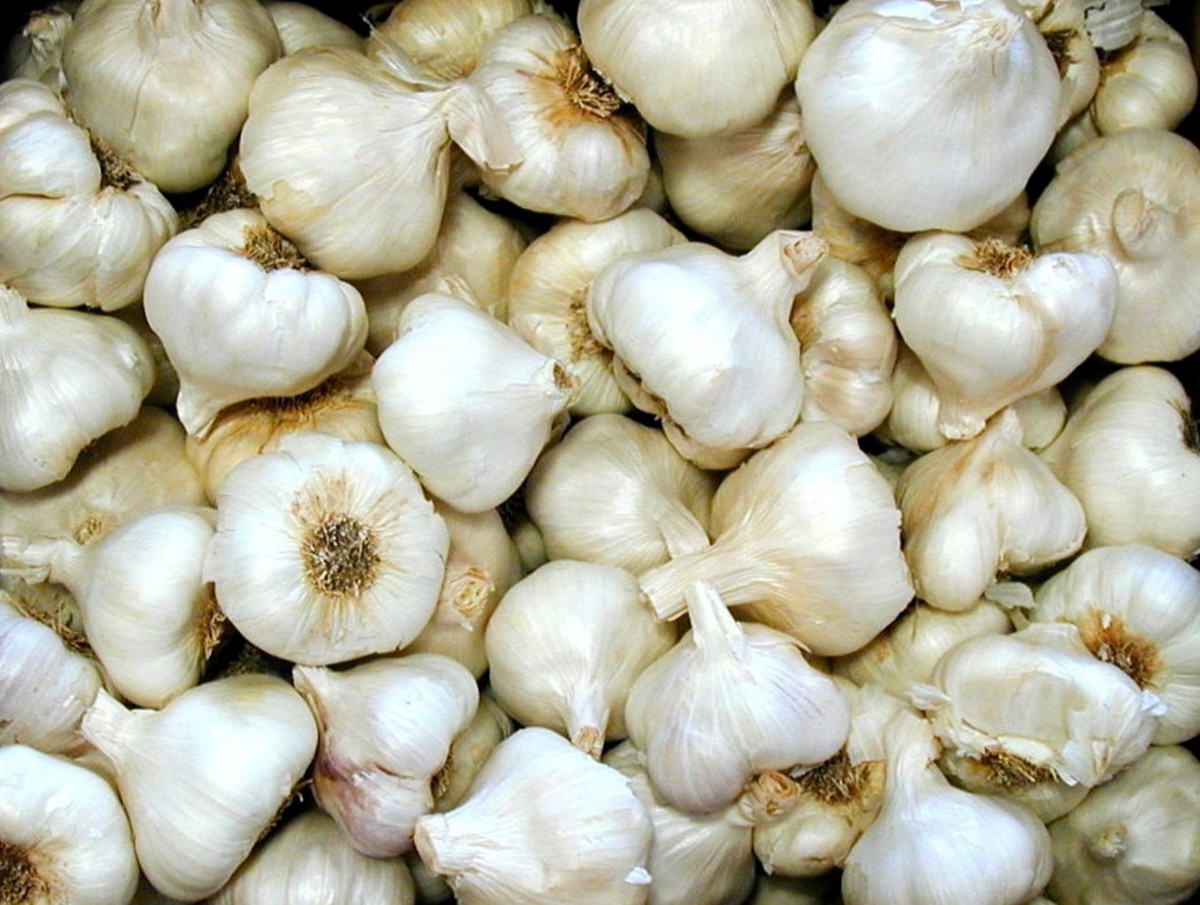Jerusalem Artichokes A Prebiotic Superfood
From lowering both blood sugar and blood pressure to fighting cancer, find out why you need to be adding these prebiotic potato like tubers to your diet.

Jerusalem Artichokes Healthy Cheap and Tasty
Jerusalem Artichokes are not an artichoke and do not come from Jerusalem, They are however something of a super-food and a gardeners dream. High in fiber, low in calories, prebiotic, contain inulin, zero cholesterol, antioxidants, vitamin-C, A and E. They contain valuable B-complex vitamins such as folates, pyridoxine, pantothenic acid, riboflavin, and thiamin. Best of all they are very good to eat, tasting rich and nutty they lend themselves to a wide range of recipes.
The downside, their nickname is fartichokes and they can give you impressive flatulence, but like any new vegetable you introduce into your diet, it takes time for your guts flora and fauna to catch up.
The Health Benefits of Jerusalem Artichokes
Prebiotic ... Healthy Digestion
Prebiotic ... a non-digestible food ingredient that promotes the growth of beneficial microorganisms in the intestines.
Jerusalem Artichokes contain a prebiotic fiber called inulin which stimulates the growth of beneficial bacteria in the large intestine. These bifidobacteria fight harmful bacteria in the gut, prevent constipation while giving the immune system a boost. There is also evidence that these good bacteria can reduce the concentration of cancer causing enzymes in the intestine.
Low GI ... Diabetes Control and Weight Loss
Jerusalem Artichoke can help control diabetes and aid weight loss.
Jerusalem Artichokes have a glycemic value of 50 making them ideal for diabetics. The glycimic index or GI measures the rate at which a food increases blood sugar. Foods high in carbohydrates have high GI ratings and increase blood sugar levels quickly, quickly followed by steep decline. This see-sawing of blood sugars is thought to have an effect on a number of health issues including tiredness, food cravings, mood swings, heart disease, insulin resistance and diabetes. Low to medium GI foods like Jerusalem Artichokes are digested slower and cause much less fluctuation in blood sugar levels. This helps makes controlling blood sugars a little easier.
When we eat foods high in carbohydrates causing our blood sugar levels to rise our pancreas secretes a hormone called insulin. Insulin causes the liver, muscles and fat cells to store this blood sugar as energy for later use. High blood sugar levels leave excess sugar in the blood which is stored as extra fat. If we don't burn off this energy we get increase in weight. As low GI foods curb food cravings by making you feel full for longer Jerusalem Artichokes can aid with weight loss.
Prebiotic ... a non-digestible food ingredient that promotes the growth of beneficial microorganisms in the intestines
Superfood ... a food high in multiple nutrients
Potassium ...Healthy Heart, Muscles and Osteoporosis Prevention
Jerusalem Artichokes have more potassium than a banana, 100 grams raw delivers 429 milligrams, bananas 358 milligrams. Potassium is vital for a healthy heart and muscles and may improve your bone health and protect you from the risk of developing osteoporosis. Potassium rich foods like bananas and Jerusalem Artichokes are beneficial to people who eat a lot of salty food as potassium can counteract some of the negative health effects of salt. This can help protect against high blood pressure.
Thiamine ... Efficient Nervous System
An 100 gram portion of Jerusalem Artichokes provides you with 13% of the recommended daily requirement of thiamine. Thiamine, also known as vitamin B1, effects numerous bodily functions and is vital to the proper functioning of muscles and nervous system. It plays a part in carbohydrate metabolism and the production of hydrochloric acid in the stomach. A lack of which can lead to stomach pain by deterring the activation of the enzyme pepsin. A lack of which may lead to poor protein digestion. Lack of hydrochloric acid may impair protein digestion and cause stomach pain by inhibiting the activation of the enzyme pepsin. Low acid levels in the stomach can lead to an increase in the growth of harmful bacteria in the stomach which may cause diarrhea an reduce the absorption of vitamins and minerals. As we age the levels of hydrochloric acid are reduced and older people will benefit from a regular helping of Jerusalem Artichokes.
Iron, Copper and Vitamins A, C and E ... Promote Healthy Hair
Jerusalem Artichokes are high in iron, copper and vitamins A, C and E. A 100 gram serving of Jerusalem Artichokes raw provides a fifth of your daily intake of iron. Iron carries oxygen to the hair follicles keeping them healthy. A low iron count is thought to be a common causes of hair loss in pre-menopausal women. Copper also helps prevent hair loss and boost hair growth, is sometimes used to treat thinning hair and is thought to prevent greying and intensify colour. Vitamin C is needed to produce collagen which strengthens hair follicles and blood vessels to the scalp. Vitamin C is also needed for the absorption of iron.

Where to get Jerusalem Artichokes
You can buy them occasionally in supermarkets but not often and they can be very poor quality as you have no idea when they were picked. You might fair better in organic veg outlets but getting a regular supply isn't easy. Growing your own is by far the better option. They are easy to grow and will reward you year after year with a heavy crop if you can find the space. They can be left in the ground and harvested as needed.
A Brief History of Jerusalem Artichokes
The Jerusalem Artichoke despite it's name originates from North America where it was cultivated by Native Americans. The name is thought to be a corruption of the Italian for Sunflower, girasole, which it resembles. It's slight artichoke taste gives it the second part of it's name. Over the years they have collected a few other names Sunchoke, Earth Apple and Fartichoke to name but a few.
First introduced into Europe in 1616 by Samuel de Champlain where it flourished, They soon became popular as a delicacy for the rich. Jerusalem Artichoke grow like weeds, need little attention and return a good yield this made them quickly become peasant food. In London the Jerusalem Artichoke became so common and cheap that the herbalist John Parkingson wrote “that even the most vulgar begin to despise them.” When they first arrived in England they were described as "dainties for the Queen"They reached the height of their popularity at the turn of the nineteenth century but have made a few come backs since. Their name Sunchoke comes from a comeback in the 1960's and the were voted best soup vegetable by the French at the "Nice Festival for the Heritage of the French Cuisine" in 2002. They do appear to have fallen out of favour again which is a shame as they are very versatile.
Extra Information
They are easy and cheap to grow, need little or no care and have few pests to worry about. At up to three meters tall they make an excellent windbreak for tender crops and can replace sweetcorn when growing the three sisters beans, squash and Jerusalem Artichokes. If left uncut they will reward you with a flush of bright yellow sunflowers in late summer which bees love. Little or no work to harvest leave them in the ground, frost makes them sweeter and they will last all winter. They can be used as fodder for livestock such as goats and chickens, pigs love them. Lots of foliage so very useful to smallholders to make compost, bio-fuel and biochar, plus they burn well in a rocket stove.

© 2018 Frugal-UK LM








